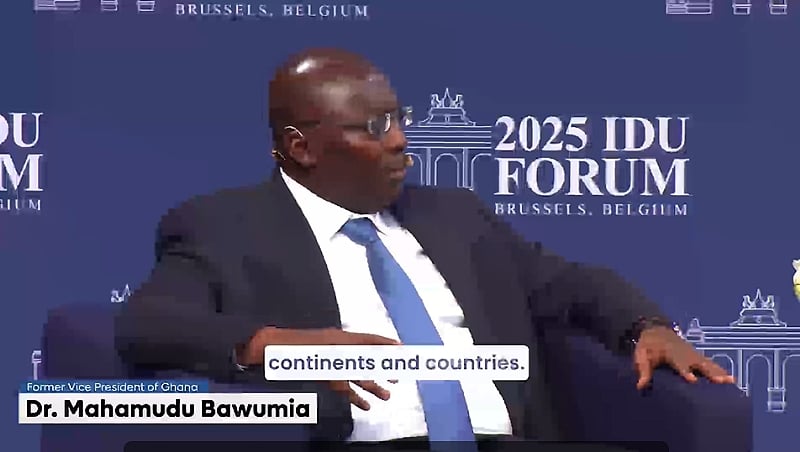Former Vice President, Dr. Mahamudu Bawumia, has cautioned policymakers against using tariffs as a remedy for trade imbalances, arguing that such deficits are fundamentally macroeconomic in nature and cannot be resolved through trade policy alone.
Speaking at the International Democracy Union (IDU) Forum in Brussels, Dr. Bawumia criticised what he described as a growing disregard for economic history and foundational principles.
“One of the things policymakers are failing to do is to learn from both history and economics,” he said.
Drawing on global trade data to highlight the magnitude of trade imbalances, Dr. Bawumia observed that Africa accounts for just 2.5% of global exports, while representing 2.9% of global imports.
In contrast, he pointed out, Asia contributes 43% of global exports and 38% of imports; Europe, 38% and 51% respectively; and the United States exports 8% and imports 14%.
“These are clear trade imbalances,” he stated, “but what we know from economics is that you cannot fix a trade deficit with tariffs — it just doesn’t work.”
Dr. Bawumia explained that a country’s trade balance is deeply linked to broader macroeconomic conditions, particularly the relationship between national savings and investment.
He emphasised that trade deficits stem from underlying structural economic issues, rather than from trade policy deficiencies alone.
“If you look at the national income identity where you say that your income is equals to your consumption, investment, government spending plus exports minus imports, that breaks down into a simple equation, which is a truism that your deficit, the exports minus your imports, would necessarily have to equal the difference between your savings and investment.
“So for any country which spends more than it saves, you’re going to get a trade deficit. The deficit is a macroeconomic problem. It’s not a trade policy issue, and you cannot solve that macroeconomic problem with trade policy like tariffs,” Dr. Bawumia said.


